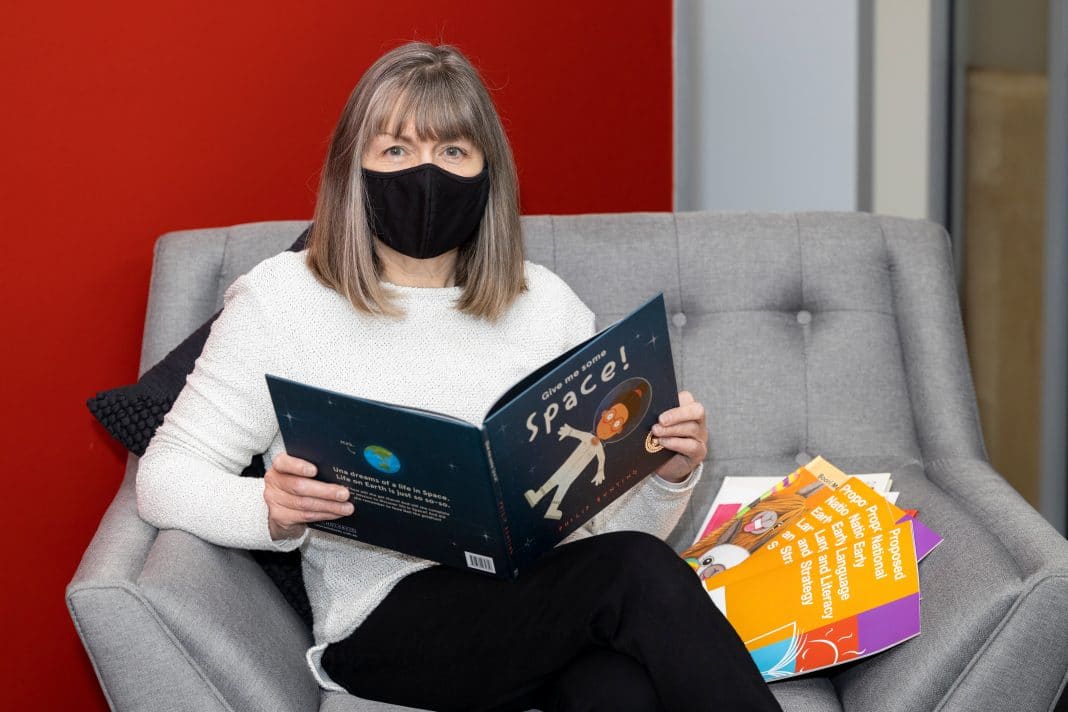Everyone can agree that children deserve the best start in life, but the National Early Language & Literacy Coalition’s (NELLC) research shows that for a significant number of Australian kids this is not the case.
For International Literacy Day today (Wednesday 8 September) the NELLC, a coalition of Australia’s peak early language and literacy bodies, is calling on the Australian Government to implement a national literacy strategy to match the likes of the UK, US and Canada.
According to NELLC chair, Sue McKerracher, one in five Aussie children are developmentally behind in their language skills before they even begin school.
In adulthood, 44 per cent of Australians don’t have sufficient literacy skills to manage the demands of everyday work and life and, as a consequence, are 1.5 to three times more likely to experience poorer health outcomes.
“Alarmingly, research shows that children who start school behind their peers often stay behind,” Ms McKerracher said.
“The consequences of this may be seen years later in the workforce and in poor health outcomes.”
This view is supported by La Trobe University language and literacy expert, Associate Professor Tanya Serry. She said children who haven’t met their language milestones before starting school are six times more likely to have difficulty learning to read, and they are likely to remain behind throughout their schooling and into adulthood.
When it comes to Indigenous Australians and literacy, the gap between their non-Indigenous counterparts is considerable.
According to the Indigenous Literacy Foundation, 74 per cent of Indigenous Year 5 students in remote areas were under the national minimum reading standards in 2019.
Into adulthood, the Aboriginal-led Lowitja Institute estimates in major cities and regional areas the Indigenous and Torres Strait Islander illiteracy rate sits at 40 per cent, while in remote areas that can rise to 70 per cent.
Co-chair of the Australian Literacy & Numeracy Foundation, UC Chancellor and proud Kungarakan and Iwaidja man, Professor Thomas Calma said a national literacy strategy is so important to better long-term life outcomes particularly for Indigenous kids, second language speakers, and children from low socio-economic backgrounds.
“It’s about getting parents and carers to understand their role in reading their children bedtime stories and having books at home to read, but it’s hard when these kids don’t have access to the internet or smartphones or don’t have an area to practise their literacy or have parents who can’t assist them,” Professor Calma said.
“If books are less of a priority than food, you just don’t get them.”
He has been working on trying to implement a strategy since the early to mid-2000s but hasn’t been able to get any government on board yet.
Asked whether he thought the current government would support and implement a national literacy strategy, Professor Calma said he was “ever hopeful, but it’s frustrating when you have the experts providing the information to government and government departments but still haven’t seen action”.
He said the Minister for Indigenous Australians, Ken Wyatt, would soon launch an Indigenous Literacy Strategy but will need the support of his parliamentary colleagues.
Spokesperson and Inaugural Children’s Laureate 2011-2013, renowned author Alison Lester said the proposed National Early Language and Literacy Strategy could be a game changer for many Australian children.
“Every child deserves to have a rich and fulfilled life and, in a country as rich as Australia, they should be able to,” Ms Lester said.
“Some of these children should have bright futures but some arrive at school so far behind that they can never catch up; they haven’t had books, stories, pencils and pens in their lives and aren’t used to being in a classroom, waiting, listening or sharing.”
Australian Children’s Laureate 2020-2021 and renowned author, Ursula Dubosarsky, said what she observes when she visits schools is a tendency to read fewer books due to the internet, which reduces the understanding gained from reading hard copy books.
“Written language is connected to spoken language but operates under a different set of complex rules that need to be taught. It’s a treasure trove of knowledge that, if exposed to before pre-school, they will be able to observe and have a whole memory bank of how written language works,” Ms Dubosarsky said.
“To have a national strategy is a tremendously important thing if we want all our children to be good readers and writers.”
She said it’s not just once children start school that they should learn how to read and write as it’s a massive cognitive load on them. Those who have been read to since they were born have a wealth of knowledge by the time they start school, making it so much easier for them and harder for others.
Get all the latest Canberra news, sport, entertainment, lifestyle, competitions and more delivered straight to your inbox with the Canberra Daily Daily Newsletter. Sign up here.
For more news:



